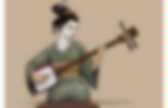

Ayumi Hamasaki. Ayumi Hamasaki (浜崎あゆみ, Hamasaki Ayumi? , also 濱崎歩; born October 2, 1978) is a Japanese recording artist, lyricist, model, and actress. Also called "Ayu" by her fans, Hamasaki has been dubbed the "Empress of J-pop" because of her popularity and widespread influence in Japan and throughout Asia.[2][3] Born and raised in Fukuoka, she moved to Tokyo at fourteen to pursue a career in entertainment. In 1998, under the tutelage of Avex CEO Max Matsuura, she released a string of modestly selling singles that concluded with her 1999 debut album A Song for ××. The album debuted at the top of the Oricon charts and remained there for four weeks, establishing her popularity in Japan.
Hamasaki's constantly changing image and tight control over her artistry has helped her popularity extend across Asia; music and fashion trends she has started have spread regionally to China, Singapore and other countries across Southeast Asia. Life and music career[edit] Childhood and early endeavors[edit] Ayumi Hamasaki 浜崎あゆみ - M from Power of Music 2011 (HQ) Ayumi hamasaki - Microphone (Rock'n'Roll Circus Tour FINAL ~7days Special~) Traditional Japanese music. Musicians and dancer, Muromachi period Traditional Japanese music is the folk or traditional music of Japan. Types of traditional Japanese music[edit] There are three types of traditional music in Japan: instrumental, theatrical and court music. Kabuki[edit] Kabuki (歌舞伎?) Is a type of Japanese theatre.
The music of kabuki can be divided into three parts: Noh[edit] Noh ( 能?) Gagaku[edit] Gagaku (雅楽?) Instrumental Music Kangen (管弦?) Shōmyō[edit] Shōmyō (声明?) Jōruri[edit] Gidayubushi (義太夫節?) There are other four jōruri styles which have largely died out. Katōbushi (河東節?) Nagauta[edit] Nagauta (長唄?) Ogiebushi (荻江節?) Shakuhachi music[edit] Shakuhachi (尺八?) Sōkyoku[edit] Ikuta ryu - Originated in Eastern Japan. Traditional music in modern culture[edit] Traditional Japanese musicians sometimes collaborate with modern Western musicians. Traditional musical instruments[edit] 鉦鼓 Shōko Traditional cultural events[edit] Artists[edit] See also[edit] References[edit] Jump up ^ "舞楽". External links[edit] Kabuki Theatre.
Manzairaku 1 of 3, Bugaku (Gagaku) - ancient Japanese court dance and music.
Shamisen. Tokyo Geisha with Shamisen, c. 1870s Kitagawa Utamaro, "Flowers of Edo: Young Woman's Narrative Chanting to the Samisen", c. 1800 A Japanese man playing a shamisen while another sings A shamisen accompanying traditional vocals, with a solo. (audio) The shamisen or samisen (三味線? The Japanese pronunciation is usually "shamisen" but sometimes "jamisen" when used as a suffix (e.g., Tsugaru-jamisen).[1] (In western Japan, and often in Edo-period sources, it is sometimes "samisen. ") Construction[edit] The shamisen is a plucked stringed instrument. The sao (棹?) The three strings are traditionally made of silk, or, more recently, nylon. Variations in construction and playing method[edit] The heike shamisen compared with a medium-sized, or chuzao shamisen. The construction of the shamisen varies in shape and size, depending on the genre in which it is used.
Chuzao The chuzao (中棹? Pictured: Bachi for minyo, tsugaru and heike shamisens. Koma variations Jiuta Koma Heights used: 2.6 and 2.8 are the standard. Yoshida Brothers Biography. Ryoichiro Yoshida: born 1977Kenichi Yoshida: born 1979 The Yoshida Brothers were born and bred in Noboribetsu, Hokkaido. Each picked up the shamisen at the tender age of five, and began studying Tsugaru shamisen under Takashi Sasaki I in 1990.
After sweeping prizes at national Tsugaru shamisen conventions, the brothers made their major debut in 1999. The debut album sold over 100,000 copies, which is an extraordinary figure for a traditional folk music release. They won the "Traditional Japanese Music Album Of The Year" category of the 15th annual Japan Gold Disc… » Read More They won the "Traditional Japanese Music Album Of The Year" category of the 15th annual Japan Gold Disc Award, as well as the "30th Anniversary Of Normalization Of Japan-China Diplomatic Relations Commemorative Special Prize" of the 17th Annual Japan Gold Disc Award.
In 2002, the brothers went on their first national tour entitled "Live Soul" performing in 30 cities. » Close. Yoshida Brothers - Storm. Yoshida Brothers - Ibuki. YOSHIDA BROTHERS -- Kodo. Geiko/Maiko Dance with Shamisen. HISAO SUGINAKA - solo de shamisen.